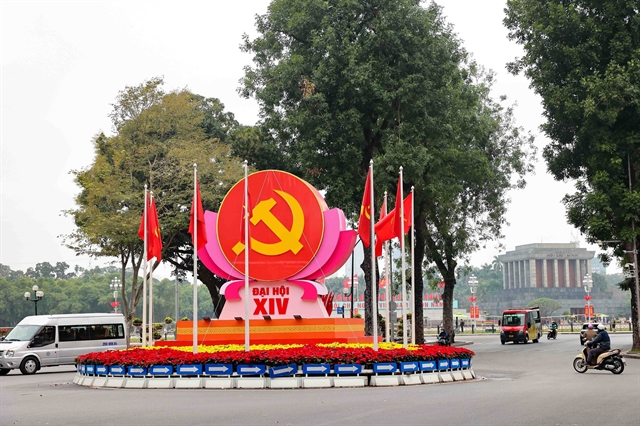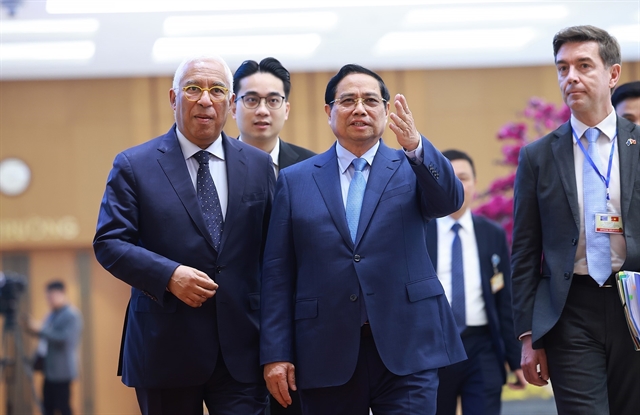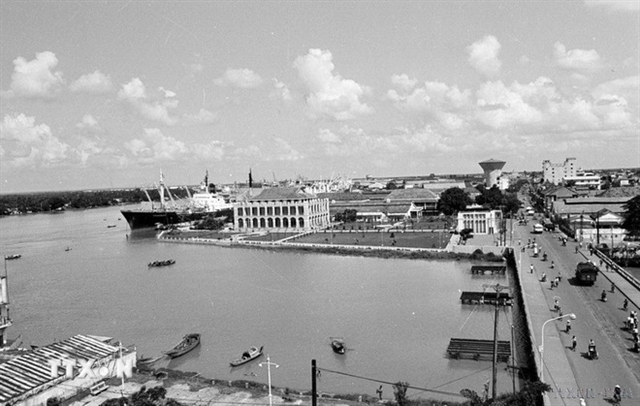 Politics & Law
Politics & Law
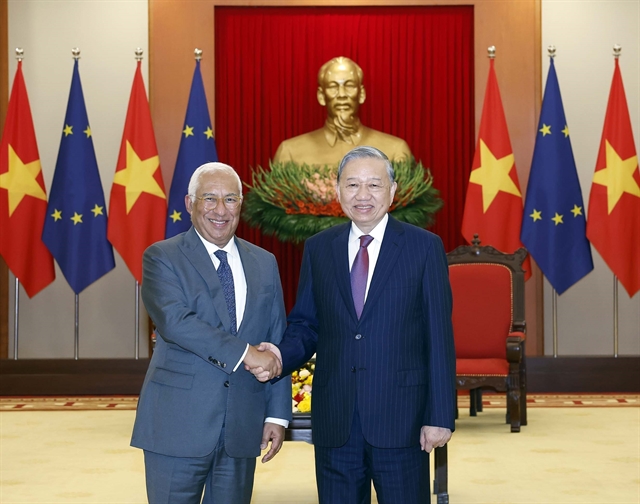
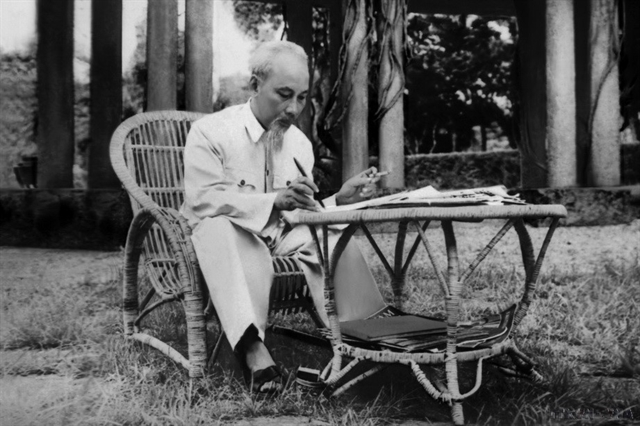 |
| President Hồ Chí Minh at work in the Presidential Palace. — VNA/VNS Photo |
HÀ NỘI — More than five decades after it was written, the Testament of President Hồ Chí Minh continues to serve as a guiding light for Việt Nam’s political leadership and national development.
Originally drafted from 1965 to 1969, the Testament was recognised as a national treasure and described as 'a guiding beacon for the nation,' shaping the Vietnamese people’s pursuit of independence, unity and national development.
On May 10, 1965, at exactly 9am, President Hồ Chí Minh began writing what he called 'a letter to leave behind for compatriots and comrades,' or 'some final words before I go.'
The timing - his birthday - and what he believed was the most favourable hour of the day - was interpreted as reflecting his composure, cultural depth and philosophical perspective on life and death. The document reflects the President’s revolutionary optimism and deep appreciation for life.
The Testament comprises Hồ Chí Minh’s strategic reflections and heartfelt messages to the Vietnamese people. It expresses his will, affection, political ideals and a sense of responsibility for the nation’s destiny.
Analysts highlight its profound humanistic values, including patriotism, compassion for the people, the aspiration for independence and freedom, and unwavering faith in the people’s strength.
Throughout the document, President Hồ Chí Minh expressed confidence in the victory of the struggle for national unification and the reconstruction of the country. In a short but forceful paragraph, he repeated the words 'nhất định' ('will certainly') four times, to stress his belief in inevitable triumph:
"No matter how arduous the struggle, our people will certainly win. The American imperialists will certainly be driven out. Our country will certainly be reunified. Our compatriots in the North and South will certainly be reunited under one roof."
The Testament also provides direct guidance for the Communist Party’s internal affairs. President Hồ Chí Minh underscored the importance of unity, describing it as 'an extremely precious tradition of our Party and our people.'
He urged all levels of the Party to 'safeguard Party unity as they would their own eyes,' and stressed the importance of internal democracy, regular and strict self-criticism and criticism and mutual affection among comrades. His call aims to build a pure and strong Party capable of fulfilling its leadership responsibilities.
Beyond Party matters, the Testament sets out President Hồ Chí Minh’s vision for socialism and democratic governance, emphasising the centrality of national welfare. It reiterates his determination to achieve the eventual realisation of socialism across the entire territory of Việt Nam.
It also lays the ideological foundation for the spirit of total mobilisation during the war, with slogans such as 'Cut through Trường Sơn to save the country,' 'The most beautiful life is on the frontline,' and 'All for the frontlines, all for defeating the American invaders.'
Under the leadership of the Communist Party of Việt Nam, the ideals contained in the Testament were cited as key to major wartime victories, culminating in the Spring 1975 victory that led to the complete liberation of the South and National Reunification.
Officials said President Hồ Chí Minh’s vision continues to guide Việt Nam’s path of development. In a speech delivered at the Hồ Chí Minh National Academy of Politics, General Secretary Tô Lâm described the current period as a 'new era' in which the country must 'seize opportunities and overcome challenges' to build a socialist Việt Nam that is 'prosperous, strong, democratic and civilised.'
The remarks echoed those of late General Secretary Nguyễn Phú Trọng, who stated: "Never before has our country had such stature, strength, international standing, and prestige as it does today."
To fully realise the goals of socialism set out in the Testament, current Party directives emphasise five strategic priorities:
- Creative development of Marxism-Leninism and Hồ Chí Minh Thought, drawing from national traditions and past experiences, particularly from the anti-American resistance. The Party is urged to adopt appropriate policies suited to domestic and international conditions while improving the material and spiritual life of the people.
Strengthening Party building, with a focus on political integrity, ideology, ethics and organisation. President Hồ Chí Minh’s instructions on unity, internal democracy, and criticism are stressed as essential to a clean and capable Party.
Constructing an effective, people-centred state, capable of implementing Party policies, improving administrative mechanisms and actively addressing corruption and inefficiency. The Testament’s emphasis on a government that serves the people is seen as a guiding principle.
Training a capable and ethical cadre of officials, combining political loyalty and professional competence, and embodying revolutionary morality. President Hồ Chí Minh called for cadres who are both 'red' (ideologically committed) and 'expert' (technically proficient), acting as true public servants of the people.
Mobilising the strength of the entire political system, including the Party, military, people, and institutions, to build a prosperous and modern nation. Emphasis is placed on national unity, civic responsibility and international cooperation.
The Testament remains a profound summation of President Hồ Chí Minh’s ideological outlook and his hopes for the future of Việt Nam. It continues to be regarded as a timeless source of guidance for the country’s revolutionary cause and national development. — VNS

